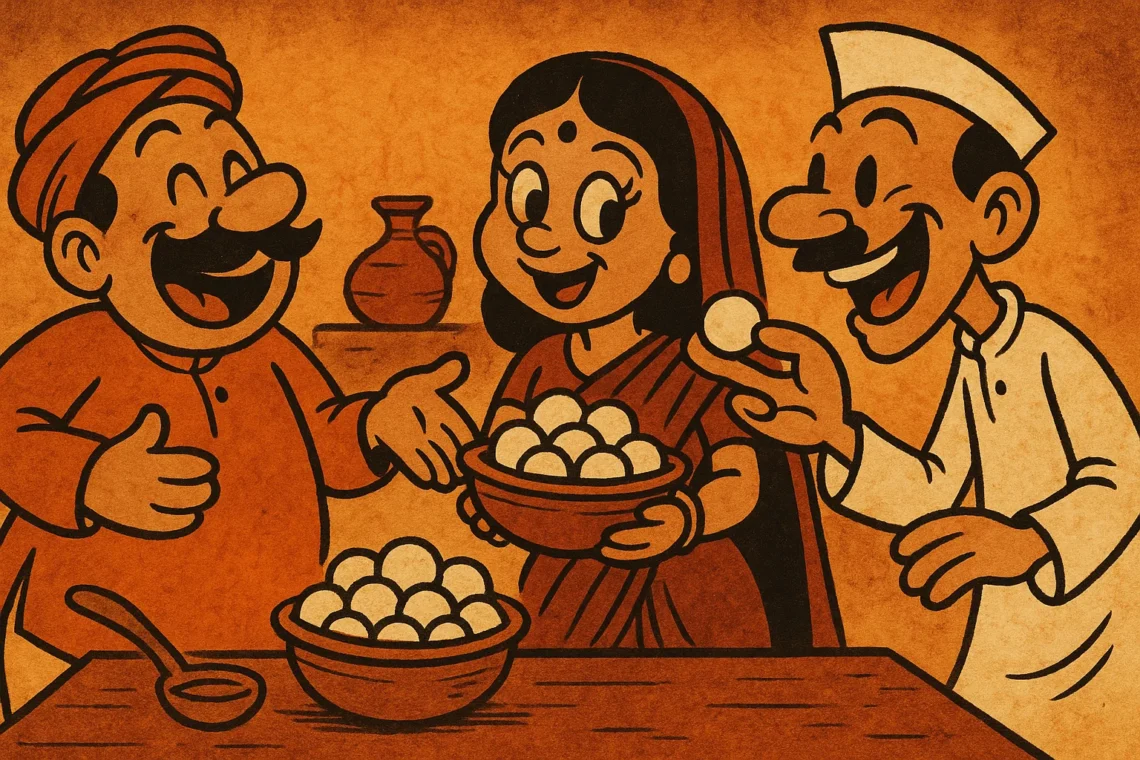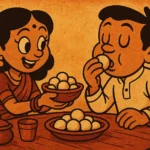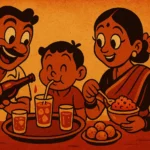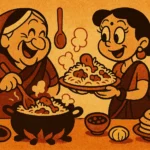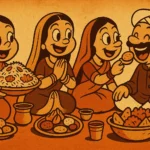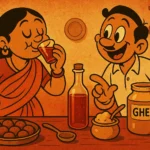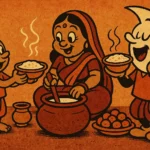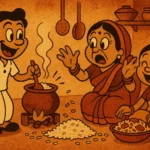In our house, rasgulla was never just dessert. It was currency. A reward. A bargaining chip that could turn a “no” into a “maybe” and a sulk into a smile. White, soft, and soaked in syrup, each one floated in its glass bowl like it knew its power — airy and innocent on the outside, but capable of negotiating world peace if needed. Or at least getting homework done.
My earliest memory of rasgulla isn’t of eating it, but of being offered one — after a particularly dramatic tantrum about going to school. My mother appeared at the kitchen doorway, spoon in one hand, bowl in the other, and said, “If you get dressed in five minutes, I’ll give you the big one.” The big one. Every rasgulla lover knows what that means. There’s always a biggest one in the bowl — slightly puffier, holding more syrup, squishier in the best possible way. I got ready in three.
Sweet Negotiations
Rasgulla played many roles in our household. It was the peace offering after an argument, the reward after a good report card, the softener of bad news. When my dad needed to break something gently — like the fact that our holiday was being postponed — he’d show up with a small box from the Bengali mithai shop near the station. “Rasgulla le aaya hoon,” he’d say, before slipping in the news. Somehow, it worked. The sugar softened the blow, every time.
And when guests came over unexpectedly, it was rasgulla we pulled out. Not fancy kaju katli or complicated laddoos — just those familiar, syrup-soaked rounds, cold from the fridge, served in mismatched bowls. They said: We didn’t plan this, but we’re still happy to see you. Have something sweet. Stay a while.
The Rasgulla Fridge Policy
In our house, rasgullas were always kept in the back of the fridge. Not because they were hidden — though sometimes they were — but because they had to be cold. Room temperature wouldn’t do. There’s a specific joy in biting into a chilled rasgulla: the shock of cold syrup against your teeth, the slow release of sweetness as the spongy ball collapses just slightly in your mouth. Warm rasgullas were acceptable only at weddings. At home, they had to be fridge-kissed and spoon-eaten, slowly and with full focus.
We had an unspoken rule that you couldn’t take the last rasgulla without asking. Or, more accurately, without pretending to ask. “Should I finish this?” we’d say, already holding the bowl, spoon ready. If no one objected within five seconds, it was yours. But if someone said, “Let’s split it,” then a delicate operation began — slicing the rasgulla with surgical precision so no one got a dry edge or an unfair syrup share.
More Than Milk and Sugar
As I got older, I started to understand why rasgulla had such a hold on us. It wasn’t just the taste — though that was part of it. It was what it represented. Rasgulla was rarely planned for, but always welcomed. It didn’t belong to a single celebration. It was comfort. It was a reset button. It was one of the few things my father, my grandmother, and I all agreed on. We had opinions on everything — politics, films, even chai — but on rasgullas, we stood united.
And in some strange way, rasgulla was a blessing. Not in the religious sense, but in the human one. It appeared when needed, asked nothing in return, and gave generously — of syrup, of comfort, of calm. When my grandmother passed away, we didn’t do the usual offering of sweets at the temple. Instead, we served rasgullas at the house after the ceremony. Not as tradition, but as memory. As her favorite. As ours.
Now That I Buy Them Myself
Living away from home, I still buy rasgullas once in a while — the tin ones from the Indian grocery store, always a little too sweet, always missing the magic. But I still eat them cold, with a spoon, in a quiet kitchen, usually when I’m feeling tired or far from something I can’t name. And every time, the first bite brings back the negotiation table, the fridge, the half-eaten bowl, the sly deals made in exchange for one more.
Rasgullas broke my resolve so many times — made me cave, made me forgive, made me forget. But they also put things back together. Slowly. Softly. With just enough syrup to remind you that sweetness doesn’t always need ceremony. Sometimes, it just needs a spoon and someone to share it with.
Born in Mumbai, now stir-frying feelings in Texas. Writes about food, memory, and the messy magic in between — mostly to stay hungry, sometimes just to stay sane.

